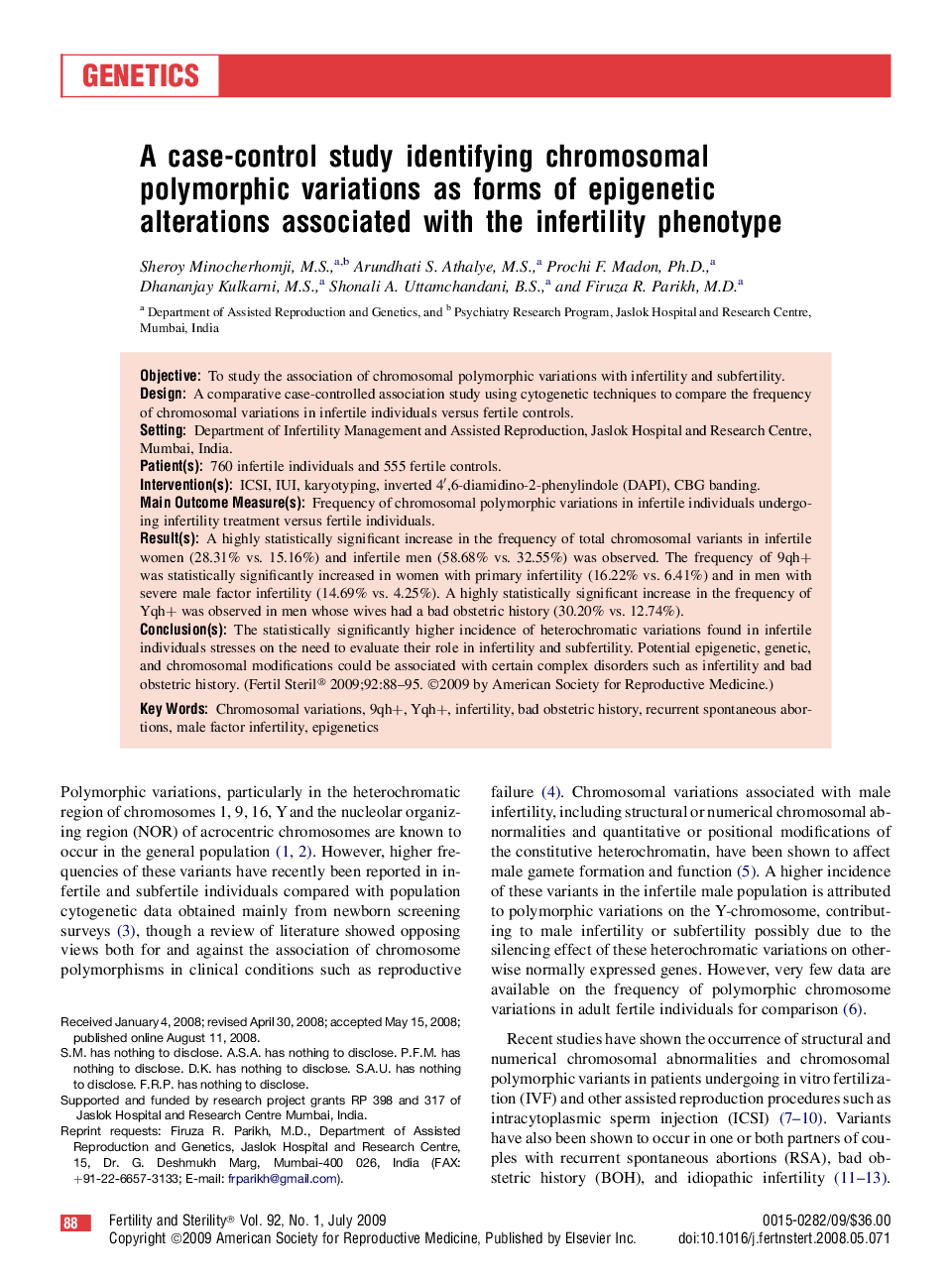| Article ID | Journal | Published Year | Pages | File Type |
|---|---|---|---|---|
| 3936845 | Fertility and Sterility | 2009 | 8 Pages |
ObjectiveTo study the association of chromosomal polymorphic variations with infertility and subfertility.DesignA comparative case-controlled association study using cytogenetic techniques to compare the frequency of chromosomal variations in infertile individuals versus fertile controls.SettingDepartment of Infertility Management and Assisted Reproduction, Jaslok Hospital and Research Centre, Mumbai, India.Patient(s)760 infertile individuals and 555 fertile controls.Intervention(s)ICSI, IUI, karyotyping, inverted 4′,6-diamidino-2-phenylindole (DAPI), CBG banding.Main Outcome Measure(s)Frequency of chromosomal polymorphic variations in infertile individuals undergoing infertility treatment versus fertile individuals.Result(s)A highly statistically significant increase in the frequency of total chromosomal variants in infertile women (28.31% vs. 15.16%) and infertile men (58.68% vs. 32.55%) was observed. The frequency of 9qh+ was statistically significantly increased in women with primary infertility (16.22% vs. 6.41%) and in men with severe male factor infertility (14.69% vs. 4.25%). A highly statistically significant increase in the frequency of Yqh+ was observed in men whose wives had a bad obstetric history (30.20% vs. 12.74%).Conclusion(s)The statistically significantly higher incidence of heterochromatic variations found in infertile individuals stresses on the need to evaluate their role in infertility and subfertility. Potential epigenetic, genetic, and chromosomal modifications could be associated with certain complex disorders such as infertility and bad obstetric history.
